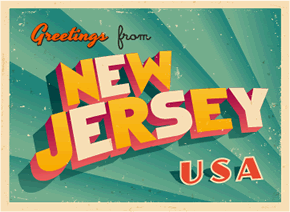A Comparison of iGaming Licenses in New Jersey and Nevada
What is the difference between a Service Provider License and an Operator of Interactive Gaming license in Nevada? What about a Casino Service Industry Enterprise License (CSIE) and an Ancillary Casino Service Industry Enterprise License in New Jersey? How do Nevada and New Jersey Licenses differ? If you have been looking for answers to these questions this column is for you.
Nevada Licenses
Nevada licenses are relatively straightforward, save the Service Provider License, and more specifically the Class 2 Service Provider License, which was written in a manner that allows different interpretations as to what companies will fall under its umbrella.
*Italicized Definitions below were taken from the regulations on the NV.gov website
Operator of Interactive Gaming License
Authorizes the holder to, from Nevada, engage in the business of operating interactive gaming. The initial fee is $500,000, which is for two years. The annual fee thereafter is $250,000 (NRS 463.765).
Service Provider License
Authorizes the holder to act as a service provider and includes an interactive gaming service provider license. The annual fee is $1,000 (NRS 463.677, Regulation 5.240 and Regulation 5A.220).
-
Class 1: Non-restricted gaming license, and considered the highest level of licensing in Nevada. Among other things, this license allows a company to provide and/or operate an iGaming platform to a licensed operator.
-
Class 2: This is where things get complicated, as a Class 2 license is given to any company that doesn’t fall into the narrower classifications outlined in Class 1 and Class 3, such as Age/ID verification companies and payment processors.
-
Class 3: Probationary license for affiliate marketers.
For a complete breakdown of each SPL Class’s scope I suggest visiting Irlaw.com
Manufacturer of Interactive Gaming Systems License
Authorizes the holder to manufacture, assemble or produce an interactive gaming system for use and play in the State of Nevada in accordance with Regulation 14. The initial fee is $125,000, which is for one year. The annual fee thereafter is $25,000 (NRS 463.760).
Manufacturer of Equipment Associated with Interactive Gaming License
Authorizes the holder to sell, transfer or offer equipment associated with interactive gaming for use or play in this State of Nevada. The initial fee is $50,000, which is for one year. The annual fee thereafter is $25,000 (NRS 463.760).
New Jersey Licenses
New Jersey went with a more simplistic approach to licensure in the state, clearly defining the scope of each license.
*Italicized definitions below were taken from the regulations on the NJ.gov website
Casino Service Industry Enterprise License (CSIE)
Companies providing Internet gaming software or systems, vendors who manage, control, or administer games and associated wagers conducted through the Internet, and providers of customer lists of persons who have placed wagers through the Internet.
Ancillary Casino Service Industry Enterprise License
Marketing affiliates, junket enterprises, junket representatives, and enterprises providing other services including, but not limited to, payment processing and related money-transmitting services, customer identity, age verification, and geo-location verification used in the conduct of Internet gaming, regardless of any such enterprise’s contractual relationship with an Internet gaming permit holder, shall be licensed as an ancillary casino service industry enterprise.
Vendor Registrants
Enterprises providing other services including, but not limited to, telecommunications that are not specifically designed for Internet gaming and patron interaction shall register as a vendor with the Division.
New Jersey and Nevada Licenses: The Differences
The starkest difference between the two states was Nevada’s decision to differentiate between operators and service providers, creating four separate licenses (Operator, Class 1 Service Provider, Class 2 Service Provider, and Class 3 Service Provider) where New Jersey’s CSIE license encompasses operators and what would be considered Class 1 and some Class 2 Service Providers in Nevada.
Another difference is New Jersey’s decision to include manufacturers into their CSIE licenses:
all casino service industry enterprises offering goods and services … including gaming equipment manufacturers, suppliers, and repairers, independent testing laboratories, …shall meet the standards established for casino key employees in order to be licensed.
It would appear that New Jersey (despite offering a full slate of casino games and not simply online poker) has the more streamlined licensing process. The complex and vague wording of the Class 2 Service Provider License will likely see many changes in the coming years as Nevada regulators try to pin down precisely who falls into this category.






